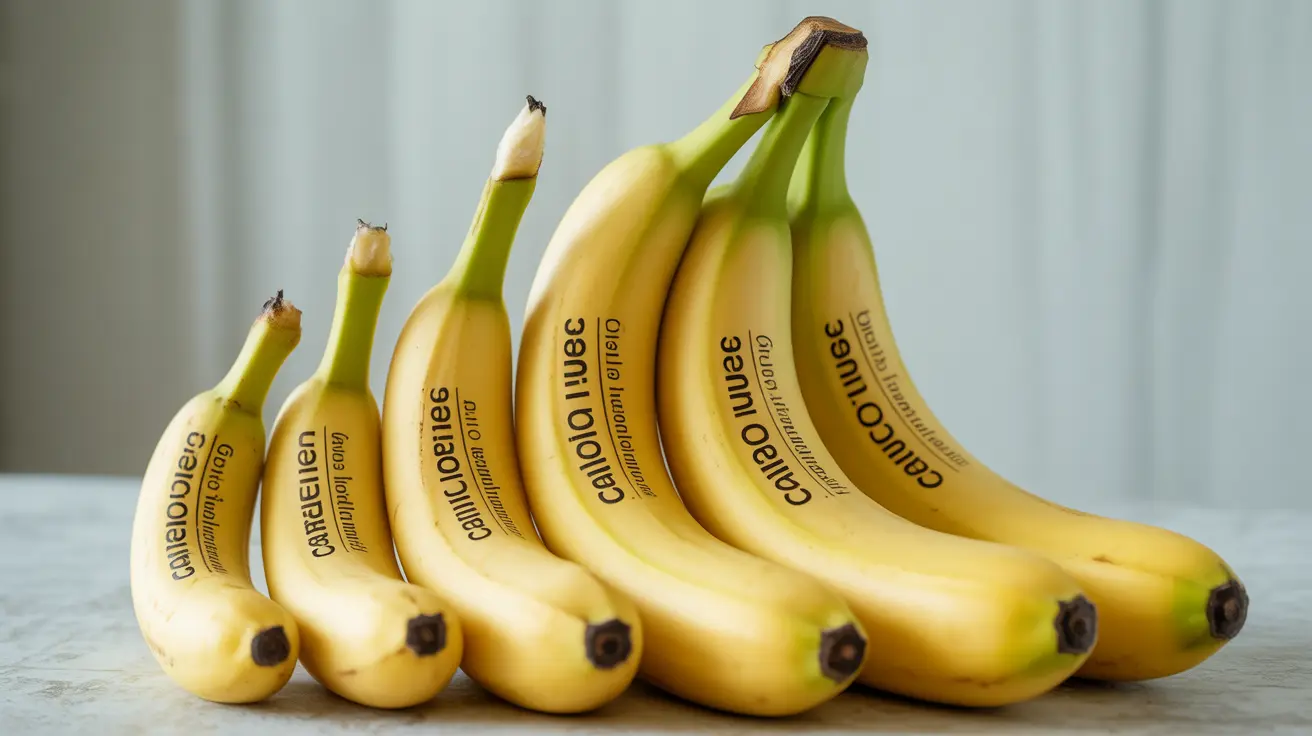Bananas are one of the most popular fruits worldwide, offering both convenience and nutrition. Understanding the caloric content and nutritional value of bananas can help you make informed decisions about incorporating them into your diet. This comprehensive guide explores everything you need to know about banana calories, carbohydrates, and their overall nutritional impact.
Caloric Content by Banana Size
The number of calories in a banana varies significantly based on its size:
- Extra small (less than 6 inches): 72 calories
- Small (6-7 inches): 90 calories
- Medium (7-8 inches): 105 calories
- Large (8-9 inches): 121 calories
- Extra large (9+ inches): 135 calories
Nutritional Composition
Beyond calories, bananas offer an impressive array of essential nutrients that contribute to overall health:
Macronutrients
A medium-sized banana (118 grams) typically contains:
- 27 grams of carbohydrates
- 3.1 grams of fiber
- 1.3 grams of protein
- 0.4 grams of fat
Vitamins and Minerals
Key micronutrients in a medium banana include:
- Vitamin B6: 22% of Daily Value (DV)
- Vitamin C: 17% of DV
- Potassium: 12% of DV
- Magnesium: 8% of DV
- Manganese: 16% of DV
Ripeness and Sugar Content
The ripeness of a banana significantly affects its nutritional profile. As bananas ripen, their starch content converts to sugar, changing both their glycemic impact and taste:
Green Bananas
Unripe bananas contain more resistant starch and less sugar, making them:
- Lower on the glycemic index
- Better for blood sugar control
- Higher in prebiotics
Yellow to Brown Bananas
Riper bananas feature:
- Higher sugar content
- Easier digestibility
- More antioxidants
- Sweeter taste
Blood Sugar Impact and Diabetes Considerations
While bananas contain natural sugars, their fiber content helps moderate their effect on blood sugar levels. People with diabetes can still enjoy bananas as part of a balanced diet, but should consider:
- Choosing slightly underripe bananas
- Pairing with protein or healthy fats
- Monitoring portion sizes
- Tracking total daily carbohydrate intake
Weight Management and Bananas
Bananas can be an excellent addition to a weight management plan when consumed mindfully. Their combination of fiber, nutrients, and natural sweetness makes them a satisfying snack option that can help control appetite and prevent overeating.
Frequently Asked Questions
How many calories and carbohydrates are in a banana of different sizes?
Calories range from 72 (extra small) to 135 (extra large), while carbohydrates range from 19g to 35g, respectively. A medium banana contains 105 calories and 27g of carbohydrates.
What nutrients does a medium banana provide besides calories and carbs?
A medium banana provides significant amounts of vitamin B6, vitamin C, potassium, fiber, and manganese. It also contains small amounts of protein, magnesium, and various antioxidants.
How does the ripeness of a banana affect its sugar and starch content?
As bananas ripen, their starch content converts to sugar. Green bananas have more resistant starch and less sugar, while riper bananas have more readily available sugars and fewer starches.
Can eating bananas impact blood sugar levels, especially for people with diabetes?
While bananas can affect blood sugar levels, their fiber content helps moderate this impact. People with diabetes can include bananas in their diet by choosing less ripe ones and monitoring portion sizes.
Is a banana a good low-calorie snack option for weight management?
Yes, bananas can be an excellent snack choice for weight management. Their fiber content promotes satiety, and at 105 calories for a medium banana, they provide substantial nutrition for relatively few calories.




